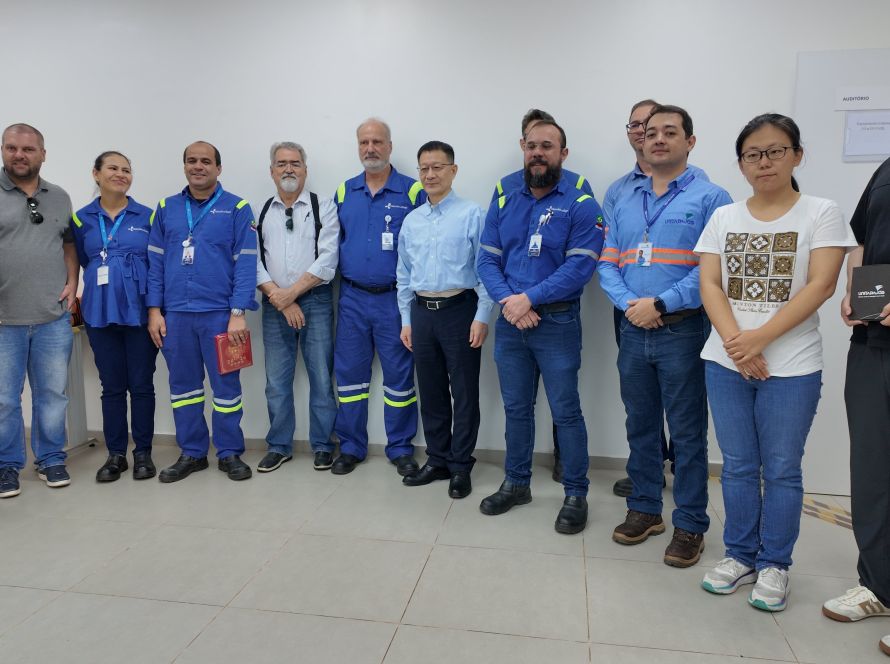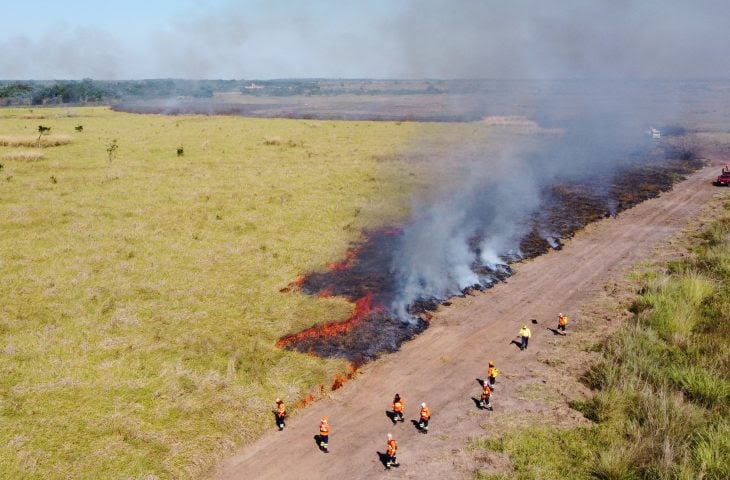The Goiás Agricultural Defense Agency (Agrodefesa) informs that the deadline for rural producers to sow sunflowers in Goiás ends on March 31. The phytosanitary measure is provided for in Normative Instruction No. 01/2022 and has been adopted with the aim of containing volunteer soybean plants (tigera) that germinate between the rows of sunflower crops, in order to prevent the proliferation of Asian rust, a disease caused by the fungus Phakopsora pachyrhizi.
The Agency's warning is necessary, especially at this time of year, because sunflower is an option for growing in the second crop, usually produced after soybeans, and is an important agricultural activity for the economy of the state of Goiás. The sowing calendar was defined and must be followed, because if soybean tigerworm emerges in fields cultivated with sunflowers, the risk of soybean rust is imminent, and there are no selective herbicides for sunflower crops registered with the Ministry of Agriculture and Livestock (Mapa).
In the national ranking, Goiás leads sunflower production. According to estimates from the National Supply Company (Conab), the 2024/2025 harvest should reach 76.2 thousand tons, an increase of 70.5% compared to the previous cycle (2023/2024), which was 44.7 thousand tons.
“Due to its good climate adaptation capacity and low incidence of pests, sunflower cultivation has become increasingly important in Goiás and among producers. The numbers are there to prove that this agricultural activity has become an excellent option for cultivation after the main harvest. Hence the importance of Agrodefesa in implementing actions that ensure plant health in the state and contribute to the agricultural economy of Goiás,” highlights the president of the Agency, José Ricardo Caixeta Ramos.
Importance of deadlines and measures
Agrodefesa's Plant Health Manager, Daniela Rézio, explains that deadlines, such as those for sowing and harvesting sunflowers, are established to prevent the incidence and spread of pests that can affect crops and cause serious losses to producers and the state's economy.
“All phytosanitary actions and measures in the area of plant health are adopted after technical-scientific studies and assessments, including with the support and approval of entities in the production sector. In this way, regulations are drawn up, always with the objective of ensuring agricultural defense in Goiás. In the case of the sunflower sowing calendar until March 31, the focus has been on reducing the emergence of volunteer soybean plants in the middle of the sunflower crop and ensuring that the soybean health gap period is respected. This is because the tigueras can host the Asian rust fungus, thus causing damage to the next soybean harvest,” he explains.
Daniela Rézio adds that IN nº 01/2022 also establishes the mandatory destruction of any and all volunteer soybean plants in the vicinity of sunflower crops, allowing only those within the crop to remain without the obligation to be destroyed until the sunflower harvest. In cases where sowing is done after March 14, the cultivars must be short-cycle (up to 105 days), because the final harvest must be done by July 15.
Another guideline is regarding the registration of sunflower crops in Goiás. The measure is mandatory and must be done within 15 days after the end of sowing, through the Goiás Agricultural Defense System (Sidago). “It is a way for us to monitor sunflower production in the state and plan necessary plant health actions for this agricultural activity”, highlights Daniela.
Forecasts and highlights
In addition to the estimated growth of 70.5% in sunflower production in the State, Conab estimates that the 2024/2025 harvest will have an increase of 11.4% in productivity, going from 1.14 tons per hectare in the previous cycle to 1.27 tons in the current harvest. In relation to the planted area, the forecast is a growth of 53.1%, jumping from 39.2 thousand hectares in 2023/2024 to 60 thousand hectares in the current cycle.
The president of Agrodefesa, José Ricardo Caixeta Ramos, reports that sunflower production, productivity and planted area have grown in Goiás due to the different uses of this grain, both in the agricultural and industrial fields. “We can highlight the use of sunflower seeds for oil production and animal feed, since the seeds are used as animal feed, especially for poultry and pigs. After the oil is extracted, the residue, which is sunflower meal, is also an excellent source of protein and fiber for livestock feed, contributing to the production of meat and milk,” he lists.
Other utilities
Sunflowers are an important rotation crop, mainly due to their ability to improve soil fertility. As they are deep-rooted plants, they can help aerate the soil and decompose organic matter. In Goiás, they have also become useful in landscaping and decoration. Due to the vibrant appearance of their large yellow flowers, sunflowers have been used in gardens and landscaping projects.
In addition, sunflowers are used in other products, such as snacks (seed snacks), cosmetics and even medicines. The oil is used in creams, soaps, shampoos and other personal care products due to its moisturizing and antioxidant properties. It is also an important plant for beekeeping, as its flowers attract many bees, contributing to the production of honey.





